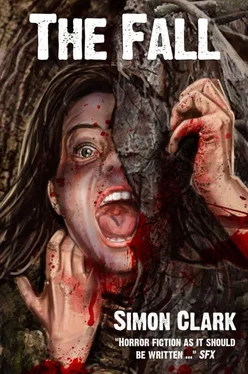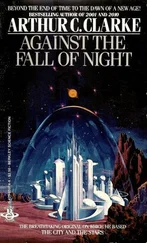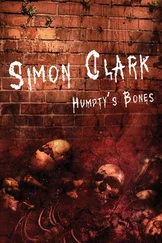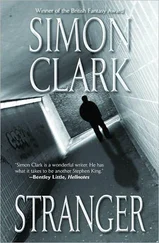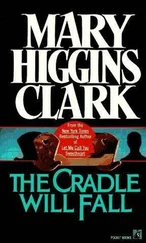He wiped his mouth with the back of his hand.
That queasy sensation was rising again, filling his mouth with a bile taste.
For one mad moment he could even feel those scurrying mouse legs across his tongue.
At last he made it to the ferry crossing without vomiting again.
Sam Baker had just tied up the rowboat. His passengers, a smartly-dressed family of eight, were walking along the jetty to the banking.
With one last effort to squeeze down the hot bile rising in his throat he went down to Sam and told him everything that had happened.
ONE
All was quiet until Christmas. Then, when there was snow on the ground, and with the sound of the church choir singing carols drifting hauntingly through the dark and deserted streets of the town, they came at last.
Anyone watching from the top of the church tower could have been forgiven for thinking that they were seeing a dark stain spreading towards the town across the snow-covered fields.
The dark stain moved like a liquid, sometimes pausing, sometimes running faster. Sometimes drops of darkness would break away from the main body of the stain to be siphoned away to an outlying cottage or farm.
In the taverns, the bars were softly lit by lamps. Their golden light spilled through mullioned windows onto the compacted snow of the street outside. The sound of talking came loudly enough from the bars when a tavern door was opened, and the occasional gale of laughter, too. But the noise became muted when the door swung shut against the cold night air.
The black stain flowed into the town as relentlessly as flood water.
Then, for a moment, everything seemed to stop.
A hush ran through the town. For five long seconds there was a kind of preternatural silence. It was as if the whole population was briefly endowed with a sixth sense; as if they had seen what approached, and then had held their breath in shock.
The clock in the town hall tower struck nine sombre chimes.
And that was when the whole town seemed to scream as one.
TWO
In the neighbouring village of Ouse-Burton, four miles away, Sam Baker raised a glass of beer to Jud; the clock in the coaching inn struck nine.
Sam shivered and looked at the inn door, wondering if it had been left open to the cold night air. It was closed.
Jud took a swallow of beer. ‘What’s wrong, Sam?’
Sam shivered again before edging nearer to the blazing fire. ‘Nothing.’ He smiled. ‘A goose just walked over my grave, that’s all.’
‘A brandy’ll be the best cure for that.’ Jud took a deep drink of beer. ‘You know, that’s the best drop of mild I’ve ever tasted.’
Sam didn’t hear. Shivering deeply again, down to the very core of his bones, he looked out of the window.
Snowflakes whirled by outside.
‘It looks as if it’s blowing up a storm. Do you think we’ll make it home tonight?’
Jud held up the pint and admired the firelight shining through it, turning it the colour of amber. ‘I certainly hope not,’ he said. ‘I could sink a few more of these.’
At that moment the coachman came in, blowing into his hands. ‘Five minutes, ladies and gentlemen. Five minutes, if you peer-leeeze.’
Sam smiled and shook his head. ‘Looks as if you’ll be home to warm your old bones in front of the fire after all.’
‘Ah, and you don’t get any chillier than a narrow boat in this weather. I hope Dot has kept the fire lit.’
THREE
Distant shouting had brought Dot Campbell onto the deck of the narrow boat. She carried a lantern in which a single candle burned.
Holding the sheepskin coat tightly closed across her nightdress she peered into the darkness, her eyes blinking as flakes of snow were driven into them by the rising wind.
She wished Jud was home. It got so lonely out on the river when he wasn’t there. The double bed was so much chillier, too.
True, she had been invited to stay up at the farmhouse. But she’d wanted to finish making the mince pies. Christmas Day, when there would be a party for all the surviving time travellers, was only five days away.
And, dear God, it was cold down here on the river bank. Maybe those cries in the distance were nothing but cats out on the tiles.
Still, it sounded unnerving. Closer to screams than cries. And they seemed to be coming from the cottages at the end of the track.
She held the lantern higher. The semicircle of the amphitheatre showed a flawless white in the near-darkness. Every so often the wind rushed into it, and made a sound like a gigantic seashell held to your ear.
She advanced a step or two along the gangplank towards the shore.
If she didn’t see anything in the next ten seconds she’d turn back, go down into the warmth of the cabin, lock the door; then she’d sit tight and wait until she heard Jud’s knock.
‘And I hope he doesn’t take all night to come home,’ she said under her breath. A shape moved against the snow to her left. ‘Jud? Is that you? Hurry up, you’ll catch your death out there.’ She turned the lantern towards the approaching figure. ‘How did it go at the—’
Her voice died.
Coming towards her through the swirling snowflakes was an image of the devil himself.
Dot Campbell found her breath and screamed. Then she screamed again.
FOUR
That same fateful night Lee Burton was a clown. He stood centre stage in Rington’s Music Hall Theatre before a packed house and recited a comic poem. His costume hadn’t evolved yet into that of the 20 thCentury clown. The trousers were tight, not baggy, and although his face was covered in white paint there was no big red nose. In fact, when he’d looked in the mirror in the dressing room (always a chaotic and noisy place, with heaps of costumes on tables and the air blue with tobacco smoke and bad language) he’d seen something that more closely resembled the Harlequin character, complete with a tight-fitting suit of black and white diamonds.
He recited the poem with enthusiastic gestures, enjoying himself enormously. The poem told the story of a stable boy’s unlucky attempts to woo a dozen different ladies.
The stage lamps burning just in front of him were too dazzling for him to see whether the audience were enjoying it or not. But there was laughter (all of it in the right places); and all they were throwing were pieces of orange peel – not bottles or lumps of coal.
There’s no business like showbusiness.
He remembered the line and realised it was true. He was having a hell of a night and loving every minute of it.
FIVE
There was no heating in the stagecoach. The eight passengers sat facing each other on two bench-like seats. Thick rugs rested across their laps, allowing them to trade body heat with their neighbours. Ice formed on the inside of the windows. White vapour billowed from mouths and nostrils.
Sam and Jud had treated themselves to the expensive seats inside the coach. They’d had a good day in York selling pieces of jewellery and some glassware that Jud had dug out of the backs of cupboards on his boat. The money would be useful when it came to buying a few head of cattle in the spring.
Sam scraped ice away from the window. Snowflakes streamed past the window. For all the world they could be underwater and those might be bubbles shooting by. The updraught caught the snowflakes, causing them to rise rather than fall. The horses were making steady progress along the road that ran through the forest. At this rate they’d probably be in Casterton by ten o’clock.
SIX
‘ Reverend Hather! Reverend Hather! ’
Читать дальше
